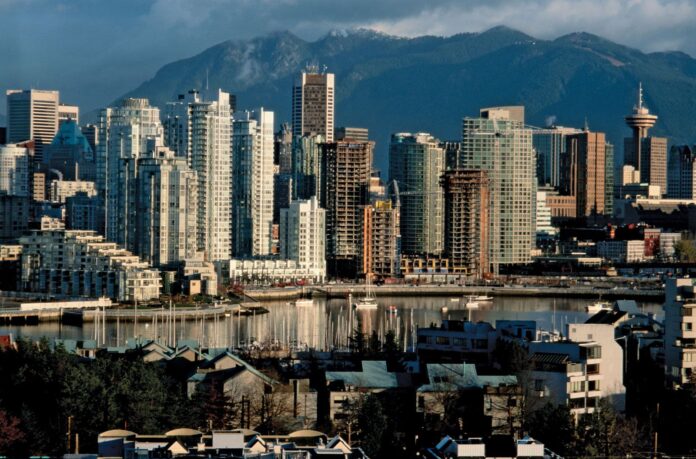Did you know that even if your home has never been broken into, a higher crime rate in your local area will spike your insurance rates? That’s because insurance rates are impacted by two things: factors you can control, and factors you cannot.
If you’ve noticed your insurance rates have increased but you haven’t made any changes to your living situation or made a claim, it’s likely due to external (and oftentimes global) factors.
As an example, climate change in British Columbia has started to rear its ugly head over recent years.
Several thousand years ago, most of the province was entirely covered in ice. Within about the last century, BC has become significantly warmer – warm enough that seasons have been altered irreparably.
The province has started to see increased concentrations in its atmospheric carbon dioxide, a higher frequency of extreme weather, and prolonged drought seasons (consequently resulting in higher rates of wildfire.)
All this is to say that your insurance quotes in BC have been impacted because of many issues. Know more about insurance quotes with Megson Fitzpatrick, and here’s why your rates may have been impacted as a resident of British Columbia.
Climate change

Climate change may not necessarily have caused the most significant change in your rates, but it’s something to note that is – of course – well out of your control and may be more prevalent in coastal cities in British Columbia.
In fact, insurance companies are starting to alter the way they write policies as a result of the “irreversible” ramifications of climate change.
Extreme weather causes a higher frequency of wildfires, earthquakes, storms, etc., which then consequently damages properties. The more claims there are, the higher an insurance company may charge you to offset the cost of claim payout.
Even if you haven’t made a claim recently, you could still see your rates impacted if the community you live in has been significantly affected by a wildfire or hailstorm.
Inflation
The average cost of homeowner insurance has increased well more than three times the rate of inflation over the course of the last decade.
There are now higher prices for building materials, higher costs of labor for contractors who may be working to restore or repair your home, and the escalation of supply chain disruptions globally – all resulting in higher costs to insure your home.
Pandemic
While the worst of the novel coronavirus is behind us, its ramifications and consequences are still impacting us to this day. One of the major impacts that COVID-19 had was global closures due to stay-at-home orders, temporarily stalling businesses and disrupting the supply chain.
Because lumber, stone, and other material mills were forced to close (and many went out of business entirely) around the same time that there was an increased demand for housing materials, the cost to purchase housing materials rose significantly, and in 2022 we are still seeing those inflated prices.
Many prospective homeowners are looking for bigger, fancier homes, and existing homeowners may be seeing the consequences of owning aging infrastructure which is costlier to repair/replace.
Insurance fraud

Unfortunately, whether you’ve committed insurance fraud, you could see still your rates impacted. Insurance fraud may seem only like a surface-level crime that doesn’t hurt anyone, but it has huge impacts.
Just a couple of extra dollars being squeezed out of your insurance company could add up when it’s multiplied by numerous instances over hundreds – even thousands of households. It won’t just be the insurance company paying for the damages, either.
As insurance claim payouts rise, insurance companies are forced to increase their rates to ensure that they can continue to pay for claims.
The costs are then dispersed amongst home and auto insurance policyholders – including the good and honest ones who don’t commit any fraud.
When it comes down to it, fraud rates in British Columbia could be costing you well over $100/year on your rates.
Increasing Number of Claims
As the population in British Columbia (BC) continues to grow and urbanize, there is an increasing number of vehicles on the road, residential properties being built, and businesses being established.
This surge results in a higher likelihood of accidents and damages, translating to more insurance claims. More claims often result in insurers having to pay out more frequently, and to cover these costs, premiums are then adjusted upwards.
Furthermore, the severity of some claims, particularly those related to catastrophic events or severe vehicular accidents, can result in significant payouts, further pressuring insurance companies to increase their rates.
Regulatory Changes

The insurance industry in BC, particularly auto insurance, has seen numerous regulatory changes in recent years.
The British Columbia government, aiming to keep the insurance system financially stable and to reduce the escalating costs, has introduced changes to how injury claims are handled.
While some of these changes are designed to lower the costs for insurers, the transition and adaptations often come with administrative costs.
Moreover, the unpredictable nature of these regulatory shifts can introduce uncertainty for insurers, prompting them to increase premiums as a safety measure against unforeseen expenses.
Technological and Structural Costs
With the rapid rise of technology, vehicles, homes, and businesses are now equipped with more advanced, and consequently more expensive, features and systems.
From high-end vehicles with intricate electronic systems to homes with smart technology features, the cost to repair or replace these sophisticated systems has risen substantially.
When claims involve such high-tech items, insurance companies face higher payout costs. Additionally, modern building methods and materials, although more resilient, can be pricier to fix or replace.
As insurance companies grapple with these increasing costs, they often pass them on to the consumer through raised premiums.
Summary

It pays to be honest with your insurer. While you can’t control others’ actions, you can ensure that you are open and clear with your broker.
If you are starting to become concerned about rising costs or if you’ve noticed your rates have spiked since your last policy period, it’s not a bad idea to discuss with your broker about ways to save – i.e., through discounts you may be eligible for, bundling policies, raising your deductible, and so on and so forth.








